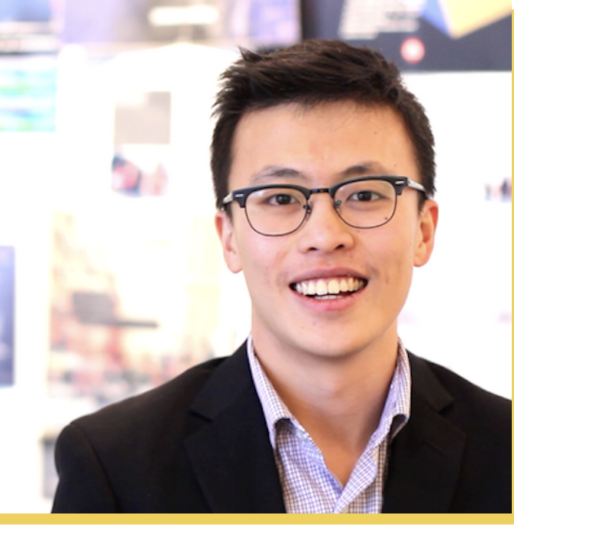Colin Powell School
Societal Perspectives: Professor Larry Au's Journey
In the academic realm, Professor Larry Au stands out for his interdisciplinary scholarship. Originally from Los Angeles and Hong Kong, Au has spent the last decade in New York City. He became an Assistant Professor in the Sociology Department in Fall 2022. Au's research focuses on inclusive science and medicine, delving into precision medicine's globalization and the politics surrounding long Covid. As he works on his first book project on Chinese biomedical innovation, Dreams of Global Science: The Transnational Politics of Chinese Biomedical Innovation, he envisions a future where scientific norms align with societal needs.
Please share something about your personal and professional background.
I received my PhD in sociology down the road from Columbia University in 2022. I’m a sociologist and I consider myself to be an interdisciplinary scholar primarily interested in topics related to science, knowledge, and technology. I also hold degrees in history and global governance. I’ve lived in New York City for almost a decade now, so the city is home. I was born in Los Angeles, but grew up in Hong Kong.
How did you discover a passion for your field; and what made you decide to pursue a PhD?
I had the good fortune to have the opportunity to explore a wide range of disciplines when I was an undergraduate, but I eventually decided to concentrate in sociology. My sociology professors back then were particularly supportive and provided enthusiastic mentorship. I was also drawn to the plurality and openness of the discipline to a wide range of viewpoints, topics, and methods. When I got to graduate school, I still hadn’t quite decided on what to focus on, but I connected with other graduate students and faculty who worked on issues related to the sociology of science, knowledge, and technology. What they were working on just seemed so fascinating—topics such as how genetic technologies shape social inequalities, how patients can create new forms of expertise and challenge expert authority, and how the state plays a role in shaping scientific knowledge and innovation. Through conversations with them, I eventually narrowed down what I was really interested in.
Can you please briefly describe your scholarly work and findings? What’s most meaningful to your field — and to you — about your work?
My research now looks at how we can make science and medicine more inclusive, and in the process, serve the public better. One part of this work examines the globalization of precision medicine — or the use of genomics and other forms of big data to improve diagnosis and treatment — as a policy idea and scientific project, focusing primarily on its rise in China. A lot of money has been invested in these new tools, with promises that these technologies will revolutionize and disrupt mainstream medicine. In my work, I show how we need to critically assess these optimistic claims and think about how inequalities and inequities often accompany new forms of scientific innovation.
A second part of this research looks at the politics of expertise around Long Covid, in particular, the experience of patients as they navigate uncertainties around their condition. This is very collaborative research, with folks in all career stages and in different institutions. Through talking to patients in the United States, Brazil, and China, we’ve come to understand how collective illness identity is shaped by institutional factors related to healthcare provision, histories of patient activism, as well as more micro-level processes related to patient-physician interactions. The goal of this research is to think about how to better provide care for this group of patients who have already gone through so much.
Can you say a bit about what brought you to CCNY and the Colin Powell School? How does CCNY differ from other colleges or universities you’ve been associated with? Perhaps discuss your work with students.
The students here really are fantastic and it is a privilege to be able to work with them. Not only are the students here incredibly diverse, they also represent all that makes New York City great: creativity, ingenuity, resourcefulness, and more. I teach classes at CCNY related to the sociology of health and illness and medical sociology, and many of my students already have backgrounds and experiences in health professions — such as working as certified nurse assistants, doulas, physician assistants, volunteering in community health settings — or aspire to enter these careers after their time at CCNY. They’ve been able to bring so much to the table by sharing their experiences. Because they are already so embedded within their communities, you can not only see the impact that their education at CCNY will have on them, but also on others around them.
Please share something about your plans — regarding research, teaching, engagement — for the next couple of years.
I am working on my first book project, tentatively titled Dreams of Global Science: The Transnational Politics of Chinese Biomedical Innovation. The book explores U.S.-China scientific collaboration in the life sciences, and how Chinese scientists navigate this increasingly contentious terrain. The book argues that scientific norms, goals, and priorities are shaped by the location of individual scientists within broader social structures and networks. It is in everyone’s interest to better align these norms, particularly around new technologies like gene editing and genetic data sharing.
What would you want to make sure everyone knows about what makes the Colin Powell School special?
The Powell School really is a welcoming and supportive community for students. The faculty and staff here are truly committed to seeing their students thrive after their time at CCNY. The types of opportunities that our students have access to really are incredible, such as things like fellowships to explore career opportunities in community organizing, climate justice, policy work in DC, and more. And it’s been great to see how the faculty and staff here are continuously working to better serve our students.
